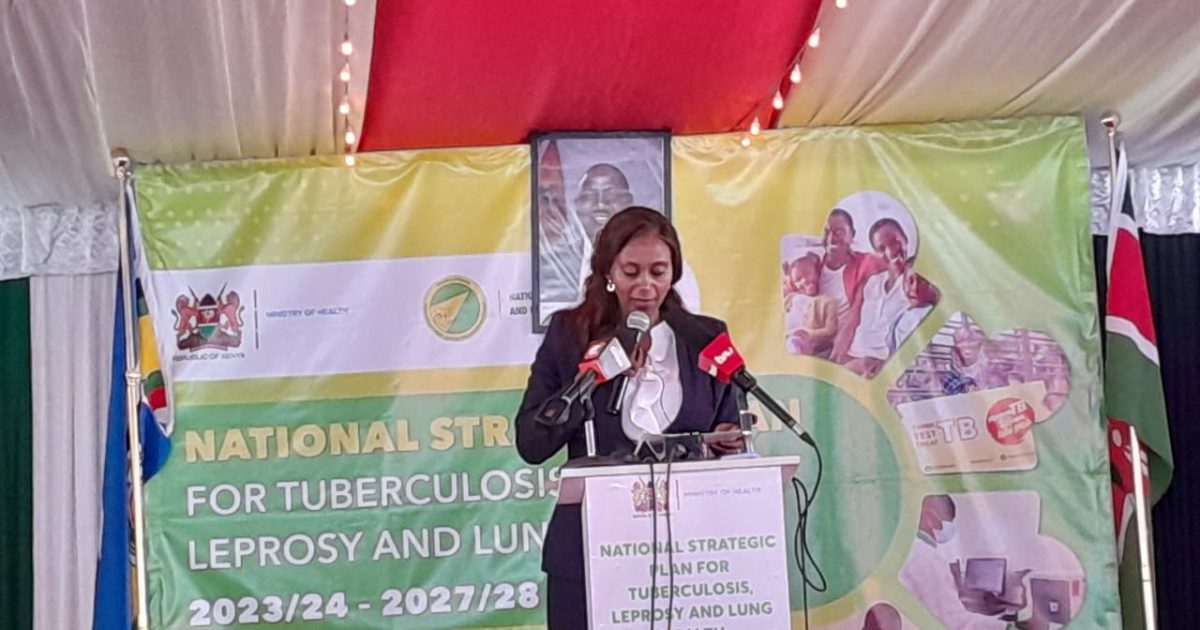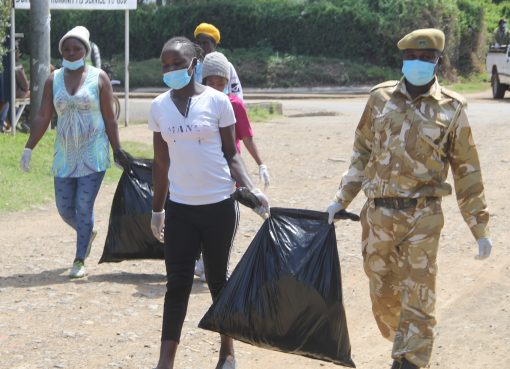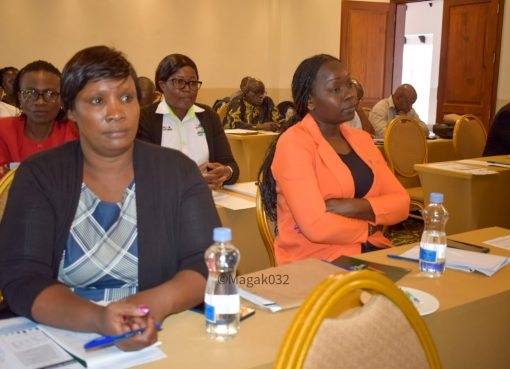The Ministry of Health (MoH) has launched the National Strategic Plan for Tuberculosis (TB), Leprosy and Lung Health, the National TB Laboratory Operational Plan, the National Quality Management framework for TB diagnostic laboratories and the pediatric TB shorter-term treatment regimen.
Presiding over the event, Public Health and Professional Standards Principal Secretary (PS), Mary Muthoni, stated that Tuberculosis (TB) remains a major public health concern, not only in Kenya but across the globe.
“It stands as a leading cause of death attributable to a single infectious agent and the havoc it wreaks on both the social and economic facets of our societies is immeasurable,” stressed Muthoni.
She further added that in 2022, Kenya recorded approximately 90,841 TB cases, a significant increase from the 77,854 cases reported in 2021.
“Alarming as this figure is, it represents only 68 percent of the estimated 133,000 TB cases that were likely to emerge that year, leaving 32 percent undiagnosed and untreated,” added Muthoni.
She cited the emergence of drug-resistant TB cases, totaling 756 in the same period, highlighting the urgent need for a comprehensive and coordinated response.
“Today, we gather here for the launch of a critical tool in our fight against TB, the TB Strategic Plan 2023/24- 2027/28,” said Muthoni.
The PS noted that the 2023/24-2027/28 plan is a testament to the commitment of the Ministry of Health and the stakeholders towards putting an end to the devastating impact of TB on our communities.
She further observed that the launch coincides with Kenya’s introduction of a community-centered Universal Health Coverage (UHC) initiative, that has seen the recruitment, kitting and deployment of 100,000 Community Health Promoters (CHPs).
According to Muthoni, the CHPs will play a pivotal role in timely Tuberculosis detection at the grassroots level so as to ensure proactive household screenings and bolstering the government’s fight against the disease.
She disclosed that the plan was developed using a people-centered approach, reflecting a bottom-up strategy championed by the government, ensuring that all stakeholders and the affected communities play a crucial role in policy design and implementation.
The Strategic Plan, the PS affirmed, does not only acknowledge the existing challenges in TB control, but also proposes practical interventions to address the root causes of these barriers.
“However, it is important to acknowledge the financial constraints we face, especially with shrinking external funding,” voiced Muthoni.
The Strategic Plan, therefore, the PS reiterated, becomes a vital advocacy tool for resource mobilization across all sectors, including the private sector as it encourages innovative financing to meet the needs of the people.
She appreciated those who were involved in the development of the strategic plan for their tireless efforts, including development partners such as WHO, USAID, and CHAI, for their invaluable financial and technical support, Civil Society Organizations, NGOs, and communities led by TB champions and persons affected by TB who have been instrumental in shaping the thinking around inclusivity.
By Silus Waswa and Abundance Mutave





